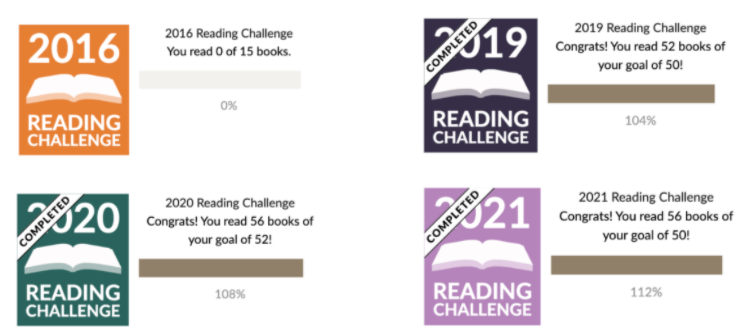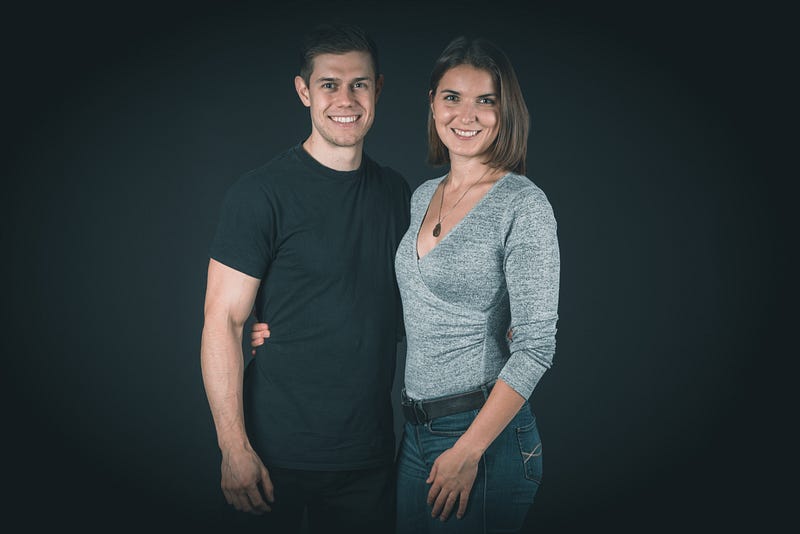Simple mindset shifts I see not many readers following.

Each January, people pledge it will be the year they will read many books. Each December, the majority wonders why they didn’t.
In 2016, I was among the millions of people who said they’d read many books — but I didn’t read a single one. Yet, in the years that followed, I gradually transformed from a reading-muffle into a book-binger.

Books are the cheapest but most impactful way to gain more skills, meaning, joy, and contentment in your life. For an average of $9, you can receive years of someone’s wisdom, distilled to some hundred pages that can be read in a few hours.
Reading 50 books a year is way easier than you might think. You don’t need to compromise on sleep, relationships, or work. In fact, you can even elevate these aspects by reading more.
Caveat: Reading is often treated as an intellectual status symbol. The more books you read, the smarter you are thought to be. It’s tempting to focus on reading as many books as possible - but it comes at the cost of depth and enjoyment. This article doesn’t encourage you to speed up your reading practice. Instead, it's an inspiration to read more (and yet slow, joyful, and thoroughly).
1) Break Up With Your Perceived Hierarchy of Books
If you’re reading this, you likely grew up with a very narrow definition of knowledge.
The existing paradigm, also prevalent in schools, is left-brain centred. Logic, reasoning, and quantification are more respected than creative expression, imagination, or emotions.
We rate knowledge sources based on this binary scheme. Many people would agree that reading for knowledge is the best reason to open a book.
Of the 102 books Bill Gates recommended over eight years, 90 were non-fiction. And from the 19 books Warren Buffett recommended in 2019, 100% were non-fiction.
But this knowledge hierarchy comes with limits. Social critic Minna Salami wrote: “The idea that calculable reasoning is the only worthy way to explain reality through is one of the most dangerous ideas ever proposed.”
Books don’t exist in hierarchies. Non-fiction isn’t superior to fiction.
Again, Salami: “We need an approach to knowledge that synthesizes the imaginative and rational, the quantifiable and immeasurable, the intellectual and the emotional. Without feeling, knowledge becomes stale.”
Luckily, there are books that can make you feel and know.
When you read Tara Westover’s memoir, you’ll feel how it’s like to grow up in a Mormon family in off-grit Idaho. Elizabeth Gilbert’s latest novel helps you understand what it was like to break free from social expectations in the 1940s.
Through stories, you elevate your levels of empathy for people outside of your cultural community. You learn not only to see the world from the perspective of others but also to share their feelings of pain, fear, and joy.
What to do:
Expand your definition of ‘knowledge’ and break up with the fiction versus non-fiction hierarchy.
Pick the book that sparks your interest, and forget whether this book will make you ‘smarter’ in a traditional sense.
“….a good book can teach you about the world and about yourself. You learn more than how to read better; you also learn more about life. You become wiser. Not just more knowledgeable — books that provide nothing but information can produce that result. But wiser, in the sense that you are more deeply aware of the great and enduring truths of human life.”
― Mortimer J. Adler, How to Read a Book: The Classic Guide to Intelligent Reading
2) Read Books You Love Until You Can’t Stop Reading Because You’re In Love With Books You Read
The first book I picked up for my reading goal in 2016 was Kahneman’s ‘Thinking Fast and Slow.’ It was on top of any bestseller list, and my university professors praised it.
Yet, whenever I read a page, I fell asleep. Ultimately, I stopped opening it altogether. Kahneman’s pamphlet became my ultimate reading killer.
I was too proud to stop. I wish I could’ve told my younger self to stop forcing yourself through books you don’t enjoy.
If your goal is to read more, quit the books that slow you down.
You might have to quit several books before you open a book you can’t stop thinking about.
What to do:
Knowing what you want to read is essential, but so is its inversion — knowing what you don’t want to read.
You’re the only person who can judge whether what you’re reading is best for you now. Read the genres you cherish, the content you enjoy, and the authors you admire.
Don’t feel guilty to start with the ‘bad stuff.’ A few hundred books in, you will become a more critical reader and anyway gravitate towards the good stuff.
Better to waste 9$ than 4 hours of your lifetime. Books aren’t created equal — millions aren’t worth your time.
As a rule of thumb, remember the following: If you don’t look forward to continuing reading the book that’s on your shelf, skip it.
“Books are tangible objects of myriad textures — aged, hardback, hand stitched and so on. They are mentally stimulating, therapeutic, and they potentially transform your deepest thought patterns. They affect you entirely.”
— Minna Salami
3) Make your phone your reading-ally
Desired behaviour isn’t solely tied to your willpower. Self-control and self-discipline depend on your environment, as Nobel-prize winner Thaler discovered.
Phones hijack your self-control: The red notification badges, Apple introduced with its Mac OS X years ago; the pull-to-refresh slot machine mechanisms that we refresh in unconscious hope of a quick dopamine shot; the infinite scrolling design, that in Nir Eyal’s words, is “the interaction design’s answer to our penchant for endlessly searching for novelty.”
The average person spends over four hours a day on their device. If you spent half the time reading, with a reading speed of 250 words per minute and an average book length of 90,000 words, you’d finish more than two books a week.
When it comes to grabbing your attention, books can’t compete with phones.
The equation is simple: The less time you spend on your phone, the more you’ll read.
Tristan Harris said: “Once you start understanding that your mind can be scheduled into having little thoughts or little blocks of time that you didn’t choose, wouldn’t we want to use that understanding and protect against the way that that happens?”
What to do:
Disable all notifications. Use airplane mode whenever possible. When you start reading, put your phone in a different room.
Keeping your phone away from your bed is one of the hardest habits to break. But the work is worth it. I replaced my phone with an alarm clock and stopped taking my phone to the bed two years ago. In bed, I can either sleep or read.
This is what will give you plenty of time.
Make reading the obvious choice. Put your book on the pillow when you make your bed in the morning. Thereby, reading in bed becomes your default option. Not having to use willpower will set you up for a regular reading habit.
“Reading is to the mind what exercise is to the body.”
4) Have an Antilibrary
Do you ever feel guilty about the book staple you haven’t read? You shouldn’t — unread books increase your motivation and capacity to learn.
When you just read a few books in your life, you’re likely aware of what you don’t know. But once you’ve read through some hundred books, you tend to become ignorant.
You might be too confident, too sure, and less aware of the things you don’t know. That’s where antilibraries come into play.
The books you haven’t read (and will never read) assemble your antilibrary.
They represent unknowledge and are the best cure for overconfidence.
“You will never read all those books,” friends say when they look at my want-to-read list. The list grows by 2–3 books every day. They are right. Even if I continue reading 1–2 books a week, I will only get through some of them.
But that’s the point: My antilibrary is a constant reminder of what I don’t know. It helps me stay curious and humble.
Psychologist Adam Grant writes: “No matter how much brainpower you have if you lack the motivation to change your mind, you’ll miss many occasions to think again.”
When you’re convinced you know something, learning something new means you have to change your mind. The best motivator to continue reading your book is a long list of books you want to read after finishing.
What to do:
Don’t ever feel discouraged by the books you haven’t read. Instead, see them as a reminder to be humble and curious.
Whenever somebody recommends a book (and you should ask the people that inspire you the most for their top 3 book recommendations), add it to your reading list (if you haven’t one, check out Google Keep, Wunderlist, ToDoist, or Goodreads and settle on your favourite list).
“Read books are far less valuable than unread ones.”
In Conclusion
Reading is liberating. Freedom means choosing from a set of options. The more options you have, the freer you are. And that’s where reading kicks in. It helps you explore options you never knew existed.
No therapy session, university lecture, or coaching session has had a bigger impact on my life than reading books. Books change your life; they change the way you think in unimaginable ways.
While each of the above principles can change how you read in one way or the other, they only serve as inspiration, and you certainly don’t need to implement every single one.
Choose one or two you like, but screw the rest. Only one person should define your reading journey — you.
Want to feel inspired and improve your learning?
Subscribe free to The Learn Letter. I read a book and 50 articles a week, and each Wednesday, you’ll receive the best in your inbox. This newsletter will make you find tools and resources that help you on your path to health, wealth, and wisdom.





